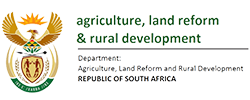WELCOME TO CASSAVA PROJECT PORTAL




FEASIBILITY ASSESSMENT: A VALUE CHAIN ANALYSIS OF THE CASSAVA SUB-SECTOR IN SOUTH AFRICA
Project Overview
Given the hastening effects of climate change, coupled with the need to diversify both South Africa’s staple food basket and sources of industrial raw materials among other concerns, cassava exhibits enormous potential in addressing such. The Food and Agriculture Organisation (FAO) earmarked cassava as the crop of the 21st Century. Among other policy and government initiatives, the Agricultural Policy Action Plan (APAP) for instance reports that the value chain of cassava exhibits a high growth potential and is labour-intensive. As a food security crop, cassava’s importance is attributable to its high resilience and adaptability under a wide range of ecological conditions, its tolerance to drought, its ability to be grown on soils with a low nutrient capacity and it can be kept for a long period in the ground before harvesting. As an industrial crop, cassava is highly versatile such that it can be used in several products including bio-ethanol, flour, paper, textiles, food additives, animal feed, and pharmaceutical industries.
Thus, sustainable cassava production presents the potential of stimulating industrial cassava starch production (among other products) without necessarily compromising the country’s food security status while contributing towards job creation, and inclusive growth of vulnerable groups i.e., women and youths. Despite cassava’s importance, it is underutilised and its value chain is under-developed in South Africa. In the recent past, there have been efforts to develop research projects and facilitate dialogue on the crop, but there is still limited knowledge about its value chain and the derived products.
As an endeavour towards bridging this gap, the Technology Innovation Agency (TIA) through the Agricultural Bio-economy Innovation Partnership Programme (ABIPP), on behalf of the Department of Science and Innovation (DSI) commissioned the National Agricultural Marketing Council (NAMC) to undertake a feasibility assessment of the cassava value chain. The NAMC partnered with the Agricultural Research Council (ARC), FABCO Primary Cooperative Limited (FABCO) and Trade & Industrial Policy Strategies (TIPS) to conduct the study.
Objectives
The overall objective is to generate evidence-based information upon which informed policies and interventions are foreseen to be made to spur further development of the cassava value chain in South Africa.
Specifical Objectives
- To quantify and validate market opportunities for cassava and its derivatives locally and internationally.
- To analyse farmers’ Knowledge, Attitudes and Perceptions (KAP) towards cassava production.
- To establish a database of how much cassava and its derivatives is produced in the country and to evaluate the important substitution benefits of local cassava production.
- To conduct a cost-benefit analysis of cassava starch production vis-à-vis starch production from maize and potatoes.
- To identify viable entry points in cassava value chains and facilitate market access for targeted farmers including women and youth.
FUNDED THROUGH THE AGRICULTURAL BIO-ECONOMY INNOVATION PARTNERSHIP PROGRAMME (ABIPP)


Contact the NAMC
Call (012) 341 1115
536 Francis Baard Street, Meintjiesplein Building, Block A, 4th Floor, Arcadia, 0007
info@namc.co.za (Communications Contact)
Report Fraud & Corruption | Whistle Blowing Hotline 0800 111 756
- Follow Us
© Copyright 2021 National Agricultural Marketing Council. All Rights Reserved
Disclaimer | Privacy Notice | Hosted by: media@namc.co.za or Call: (012) 341 1115


